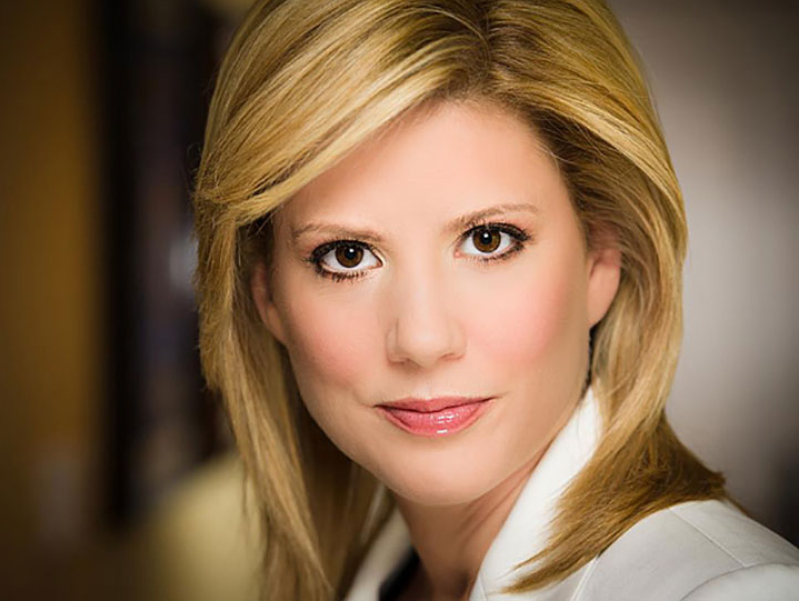
Liberal political analyst Kirsten Powers argues that the culture of free speech in the United States is now threatened by those who historically stood up for that concept.
In an interview with Katelyn Beaty of Christianity Today, Powers contended that the "tolerance" practiced by many Americans in the "cultural and political Left" has turned into intolerance, especially in terms of free speech. She cited an example from her book "The Silencing: How the Left Is Killing Free Speech."
"A professor at the University of California Santa Barbara physically attacked pro-life demonstrators who were doing a peaceful demonstration," Powers said. "It's a prototype of these cases, not in the fact that it was violent, because that's unusual, but her argument is typical: Disagreement is treated as an attack and even violent in and of itself. The act of expressing a point of view they disagree with is an act of violence."
Powers added that the professor claimed she was the victim "even though she was the persecutor." Beaty then asked her why free speech is such an important American value.
"Our conception of free speech in this country comes directly, indisputably, from liberals," Powers said. "This is a core part of American liberalism. So we have people who call themselves liberals on the Left of the political spectrum, acting in complete contradiction of their values and the arguments that underlie them."
Powers noted that there were consequences in not allowing that freedom to be practiced openly. She cited Havard psychologist Steven Pinker, who argued that knowledge is not possible without disagreement and dissent.
"The loss is that we all lose information and knowledge," Powers said. "Research doesn't get done because people are afraid of reaching the wrong conclusions, or they're never there in the first place because they can't even get hired."
The political analyst argued that in the field of higher education, ideological diversity was lacking. Diversity, she claimed, led to real knowledge.
"[Liberal theorists] argue that you need to have people of different cultures and people of different experiences and people of different genders because that brings a robust diversity to education," Powers said. "Today it's, 'Let's get a bunch of people with different skin colors and different genders and different socioeconomic backgrounds who all think the exact same way.' And what they're doing is intellectually rigorous?"
Powers added that "people have a right to think what they want to think and say what they want to say and that they should be able to express that without a fear of retaliation or punishment," noting that the media and colleges used to practice that concept.
"Today if you talk to people who are evangelical Christians in a newsroom, they're not going to talk about it because they are afraid," Powers said. "Or if you're a professor and you're conservative, you are going to hide it."
Powers then turned the focus on free speech from a Christian perspective.
"If it's wrong to marginalize and dehumanize people, then it's wrong to marginalize and dehumanize people who you disagree with," Powers said. "I've talked a lot about the fact that I think the church has not been particularly loving to gay people."
Beaty asked if the attack on free speech was "political correctness run amok." Powers replied that something deeper is happening within U.S. culture.
"The illiberal Left reminds me of religious zealots, except of a secular religion," Powers said. "The average religious person has their beliefs, but they're not trying to get people fired who don't have their beliefs. But zealots do that. It's not enough for them to believe it; they can't tolerate other people who don't believe what they believe, and they have this absolute certainty that they're right."
Powers stated that the "new intolerance" has become "an existential threat to Christians." She cited a few examples of that concept in action.
"Brendan Eich at Mozilla [who is believed to be Catholic], what happened for Chick-fil-a, you can't express this view [on marriage] without being treated like you're a KKK member. At this point Christians are countercultural, ironically," Powers said. "They have become the counterculture. They are what the liberals used to be, and when the liberals were them, they were fighting for the free speech rights."
However, Powers drew a line on what could be considered Christian persecution in the U.S.
"It's not persecution if someone thinks you're a bigot. It's persecution if you lose your job over it, but people not approving of you isn't persecution," Powers said. "We're supposed to be different. If we don't seem strange, then something is probably off."
She then stated her point of view in regards to Christianity within the public square.
"The Bible is quite clear that we're not supposed to hold nonbelievers to the standards of the Bible," Powers said. "At the same time, Christians should be free to practice their religion, to talk in their churches openly."






